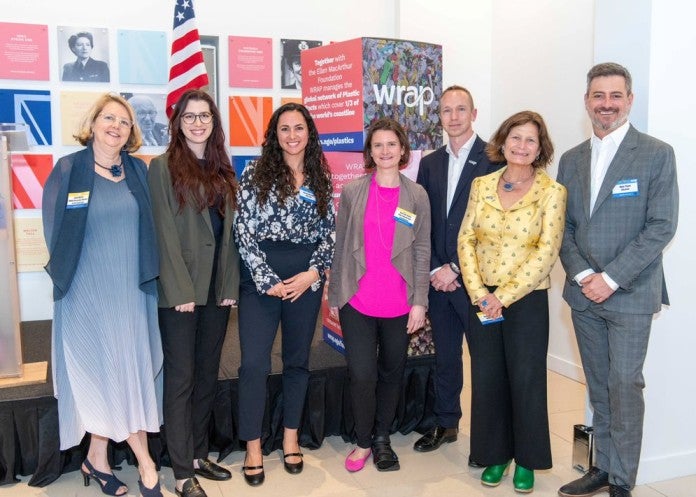Partnering with Tomra Textiles, Circle-8 aims to harness Tomra's experience and technological expertise to devise innovative solutions for automated sorting and pre-processing of non-reusable textiles in the UK market.
Through a comprehensive feasibility study, Tomra and Circle-8 Textile Ecosystems will explore the viability of an automated textile sorting and pre-processing facility to show that solution and process designs can be scaled.
The feasibility study aims to develop an automated solution capable of sorting textiles by fibre composition and colour, while also addressing challenges such as the removal of disruptors like buttons, zippers, and trims and tailoring materials to sizes suitable to textile-to-textile recycling processes.
Commenting on the collaboration, Cyndi Rhoades, co-founder and CEO of Circle-8 Textile Ecosystems said: “Automated sorting and pre-processing of non-reusable textiles is crucial to enabling a truly circular textiles value chain by turning non-reusable textiles into high-quality feedstock required by existing and emerging textile-to-textile recyclers.”
Despite the UK boasting higher average re-use levels compared to its European counterparts, the nation is said to still generate an estimated 700,000 tonnes of non-reusable apparel and textiles annually. Less than one per cent of textile material produced globally is retained within a closed-loop system.
Circle-8 Textile Ecosystems is a key member of the ACT UK consortium established in 2023 to industrialise textile sorting within the UK. Circle-8 is committed to realising a circular textiles ecosystem in the UK through its involvement with stakeholders across the textile chain.
Tomra was the main technology provider to the world's first fully-scaled automated textile sorting facility, SIPtex, in Malmö, Sweden. Drawing insights from this project, Tomra is expected to optimise its technology for industrial-scale sorting of post-consumer garments.
Likewise, Vibeke Krohn, head of Tomra Textiles added: “Realising textile circularity at scale will require regulations and incentives, infrastructure investments, and a strong digital core. But most of all, it will require collaboration and co-creation of solutions across the value chain.
“Tomra has more than 50 years of experience in developing technologies enabling the shift from linear to circular. In collaboration with Circle-8 and their network of retailers and brands in the UK, we hope to make meaningful progress on designing a solution for sorting and pre-processing of non-reusable textiles.”















